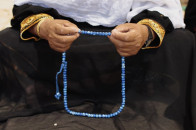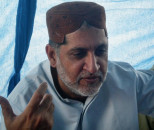Protecting heritage for the public good
Decision to preserve Dilip Kumar’s ancestral home is testament of flaws in K-P govt’s approach to heritage protection.

Sceptics have argued that it is impossible to overlook political factors when deciding what cultural heritage site merits protection. However, it would be wrong to accept the government’s stance as it disregards the fact that heritage sites should be preserved for the public good.
The sticking point, however, is not just the government’s selection of the Indian actor’s ancestral home. Acting director general of Pakistan National Council of Arts has justified the decision as a strategy to establish Pakistan’s stake in the Indian film industry. This argument is seriously flawed. It simply provides welcome proof that the state’s intention is, at best, dubious.
Nawaz plans to strengthen the cultural ties by converting Dilip Kumar’s residence into a museum. But it is important to note that the public interest cannot be pawned away so carelessly to achieve good diplomacy.
In the absence of an effective strategy, the indigenous communities have struggled to protect their heritage from the threat of extinction. A broader understanding of heritage protection must be developed in Pakistan. The concept cannot be restricted to preserving relics or converting decrepit buildings into museums. On the contrary, an ethical responsibility has to be cultivated to protect indigenous groups from being sidelined.
The government’s stance illustrates a myopic vision of heritage protection. The Indian actor’s Peshawar residence may have its own heritage value. But the government should not shy away from addressing the plight of the Kalash people – especially at a time when it has launched a military offensive to combat militancy. This approach will serve the public good and simultaneously challenge a dangerous mindset.
Published in The Express Tribune, July 21st, 2014.



















COMMENTS
Comments are moderated and generally will be posted if they are on-topic and not abusive.
For more information, please see our Comments FAQ